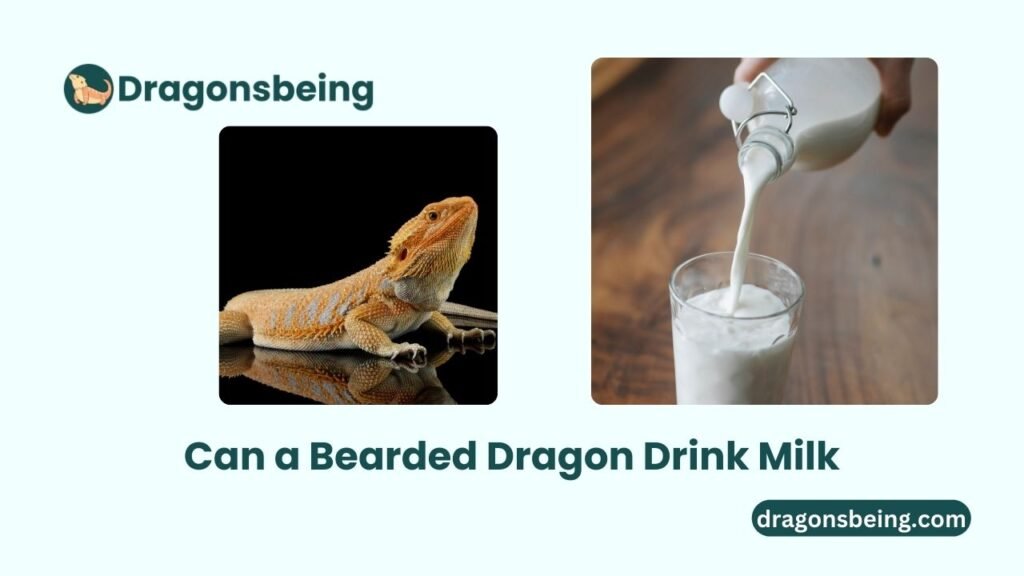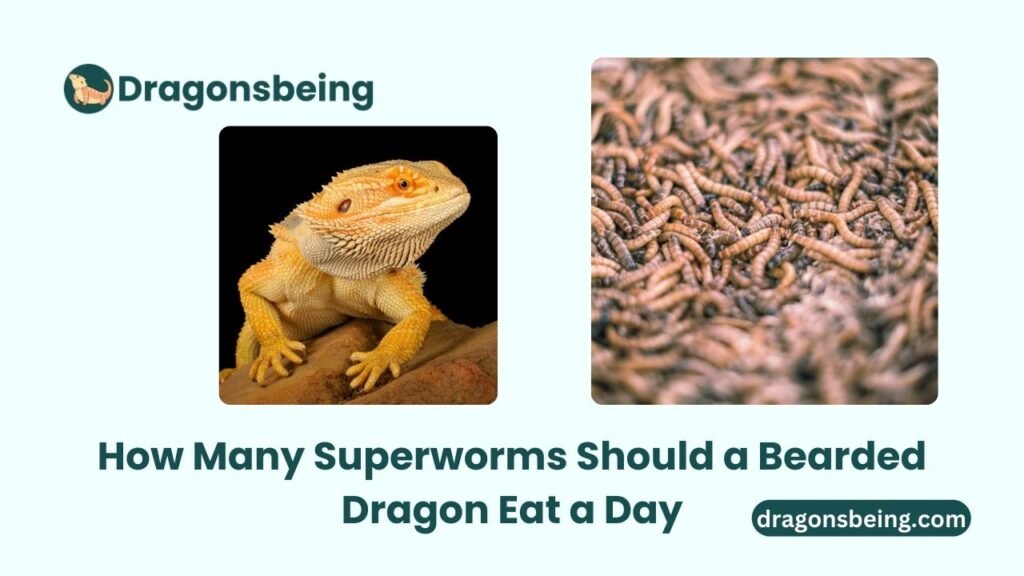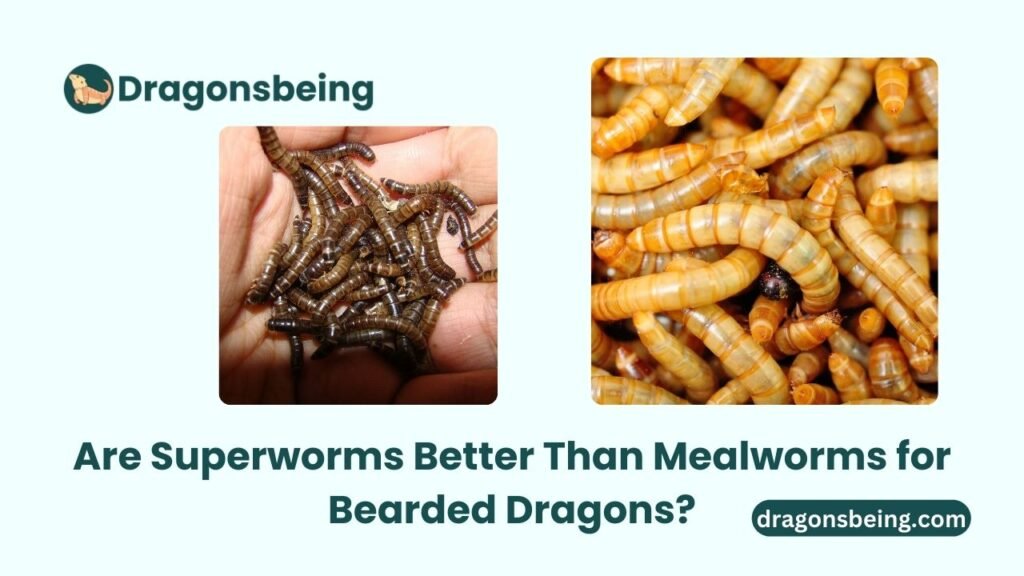Bearded dragons cannot drink milk. Their digestive systems are not equipped to process dairy products.
Bearded dragons are popular reptiles known for their friendly nature and unique appearance. As pet owners, it’s essential to understand their dietary needs for optimal health.
Many new owners wonder about the suitability of various foods, including milk. However, bearded dragons are not mammals and lack the necessary enzymes to digest lactose.
Introducing dairy products can lead to digestive issues, including diarrhea. Instead, focus on a balanced diet that includes fresh vegetables, insects, and occasional fruits.
Providing the right nutrition ensures your bearded dragon thrives and remains healthy.
Milk And Bearded Dragons
Many pet owners wonder about the diet of their bearded dragons. One common question is whether these reptiles can drink milk.
Understanding their nutritional needs is essential for their health. Bearded dragons do not need milk in their diet.
Lactose Intolerance In Reptiles
Bearded dragons, like many reptiles, are lactose intolerant. They cannot digest lactose, a sugar found in milk. Here are some key points:
- Lactose can cause digestive issues.
- Symptoms include diarrhea and stomach pain.
- Adult reptiles lack the enzyme to break down lactose.
Risks Of Dairy For Bearded Dragons
Dairy products pose several risks to bearded dragons. It’s important to know the dangers:
| Risk | Description |
|---|---|
| Digestive Problems | Can lead to diarrhea and dehydration. |
| Nutritional Imbalance | Milk offers no essential nutrients for dragons. |
| Allergic Reactions | Some reptiles might react badly to dairy. |
Keep your bearded dragon healthy. Offer fresh vegetables, fruits, and insects instead. Always prioritize their natural dietary needs.
Nutritional Requirements Of Bearded Dragons
Bearded dragons need a balanced diet for health. They require specific vitamins, minerals, proteins, and vegetation. Knowing their nutritional needs helps keep them vibrant and active.
Essential Vitamins And Minerals
Vitamins and minerals play a crucial role in a bearded dragon’s diet. Here are the most important ones:
| Vitamin/Mineral | Function | Sources |
|---|---|---|
| Calcium | Supports bone health and prevents metabolic bone disease. | Dark leafy greens, calcium supplements. |
| Vitamin D3 | Helps absorb calcium. | Sunlight, UVB light, supplements. |
| Vitamin A | Essential for vision and skin health. | Carrots, sweet potatoes, leafy greens. |
Protein Sources And Vegetation
Bearded dragons need protein and vegetation for growth. Here are some good sources:
- Protein Sources:
- Crickets
- Mealworms
- Dubia roaches
- Vegetation:
Mixing protein with fresh vegetables ensures a balanced diet. Avoid feeding them dairy products like milk. It can upset their stomachs.
The Danger Of Improper Feeding
Feeding your bearded dragon properly is crucial. Many owners unknowingly harm their pets with bad choices. One common mistake is offering milk. Bearded dragons cannot digest milk.
Digestive Issues In Bearded Dragons
Milk can cause serious digestive problems. Bearded dragons are not equipped to process dairy. Here are some common issues:
- Diarrhea: Frequent watery stools can occur.
- Constipation: Hard stools can lead to pain.
- Bloating: Swelling can cause discomfort.
These issues can lead to dehydration. Dehydration can make your dragon weak and ill.
Long-term Health Complications
Feeding milk may lead to long-term health problems. Nutritional imbalance is a major concern. Bearded dragons need a specific diet for health. Here are some possible complications:
| Complication | Description |
|---|---|
| Kidney Damage | High protein from improper foods can harm kidneys. |
| Bone Disorders | Calcium imbalance can lead to weak bones. |
| Obesity | Improper diet can cause weight issues. |
Proper nutrition is essential for a healthy life. Stick to safe foods like vegetables and insects.
Safe Hydration For Bearded Dragons
Bearded dragons need proper hydration for their health. Many owners wonder about safe drink options. Milk is not suitable for these reptiles. Understanding their hydration needs is crucial.
Water Intake Recommendations
Bearded dragons primarily need fresh water. Here are some key points about their water intake:
- Provide clean, filtered water daily.
- Use a shallow dish to prevent drowning.
- Change water daily to keep it fresh.
Beardies get moisture from their food too. Offer vegetables and fruits with high water content:
| Food | Water Content (%) |
|---|---|
| Leafy Greens | 90 |
| Cucumbers | 95 |
| Zucchini | 94 |
Signs Of Dehydration
Recognizing dehydration is vital for your bearded dragon. Watch for these signs:
- Sunken Eyes: A clear indicator of dehydration.
- Dry Skin: Skin may lose elasticity.
- Lethargy: Less active and more tired.
- Loss of Appetite: May refuse food and treats.
Address hydration issues quickly. Provide water and monitor their condition. Consult a vet for severe cases.
Alternatives To Milk
Bearded dragons cannot drink milk. Their digestive systems can’t handle it. Instead, provide them with safe, nutritious alternatives. These options can help maintain their health.
Calcium-rich Foods For Bone Health
Calcium is vital for a bearded dragon’s bone health. Here are some great calcium-rich foods:
- Collard Greens
- Mustard Greens
- Kale
- Turnip Greens
- Squash
These foods should be part of their regular diet. They support strong bones and overall health.
Supplementing With Vitamin D3
Vitamin D3 helps bearded dragons absorb calcium. Without it, they can develop health issues. Consider these options for supplementation:
- UVB Lighting: Use UVB bulbs in their habitat.
- Calcium Powder: Sprinkle it on their food.
- Commercial Supplements: Look for specific reptile products.
Choose high-quality supplements. Proper nutrition will keep your bearded dragon healthy.
Feeding Techniques For Bearded Dragons
Feeding a bearded dragon requires knowledge and care. Proper techniques ensure your pet stays healthy. This section covers the best practices for feeding and how often to offer food.
Best Practices For Feeding
Follow these best practices to provide a balanced diet:
- Variety is Key: Offer different foods each week.
- Fresh Vegetables: Include leafy greens like kale and collard greens.
- Protein Sources: Feed insects like crickets and mealworms.
- Calcium Supplement: Dust food with calcium powder.
- Water Availability: Always provide fresh water.
Avoid feeding bearded dragons dairy products, including milk. They cannot digest lactose. Stick to their natural diet for optimal health.
How Often To Offer Food
Feeding frequency depends on the age of your bearded dragon:
| Age Group | Feeding Frequency |
|---|---|
| Hatchlings (0-3 months) | 3-4 times a day |
| Juveniles (3-6 months) | 2 times a day |
| Adults (6 months and older) | Once a day |
Monitor their weight regularly. Adjust the food amount as needed. Keep an eye on their eating habits. Healthy dragons are active and alert.
Understanding Bearded Dragon Behavior
Bearded dragons are fascinating pets. Understanding their behavior helps in providing proper care. They communicate through body language and eating habits. Recognizing their needs is essential for their health.
Recognizing Hunger Signs
Bearded dragons show clear signs of hunger. Knowing these signs can help you feed them on time.
- Head Bobbing: This indicates excitement or hunger.
- Stalking Food: They may follow you or their food.
- Glass Surfing: This behavior shows they are looking for food.
- Open Mouth: They may open their mouth as a way to signal hunger.
Common Eating Habits
Bearded dragons have specific eating habits. Understanding these can help you choose the right diet.
| Age Group | Dietary Needs |
|---|---|
| Hatchlings | High protein, insects, and greens |
| Juveniles | Balance of insects and vegetables |
| Adults | More vegetables, fewer insects |
Feeding them the right food is crucial. Variety keeps them healthy and happy.
- Insects: Crickets, mealworms, and roaches.
- Vegetables: Collard greens, squash, and bell peppers.
- Fruits: Offer in moderation; examples include berries and melons.
Always provide fresh water. Avoid giving them milk. Bearded dragons cannot digest it properly.
Health Monitoring And Veterinary Care
Monitoring your bearded dragon’s health is essential. Regular veterinary care ensures your pet stays healthy. Be mindful of any changes in behavior or appearance. Early detection can prevent serious health issues.
Regular Check-ups
Regular check-ups help maintain your bearded dragon’s health. Schedule visits with a vet experienced in reptiles. Here are key reasons for regular check-ups:
- Identify health problems early.
- Ensure proper diet and nutrition.
- Monitor growth and weight.
- Check for parasites and infections.
During check-ups, the vet will:
- Perform a physical examination.
- Assess your dragon’s skin and scales.
- Check the eyes and mouth.
- Evaluate the habitat conditions.
When To Seek Professional Advice
Seek professional advice if you notice any of these signs:
- Loss of appetite.
- Unusual lethargy.
- Changes in stool consistency.
- Visible injuries or wounds.
- Signs of respiratory distress.
Prompt action can save your bearded dragon’s life. Always trust your instincts. If something feels off, contact a vet.
| Symptom | Possible Issue | Action Needed |
|---|---|---|
| Loss of appetite | Digestive problems | Visit a vet |
| Weight loss | Parasites | Check with a vet |
| Difficulty breathing | Respiratory infection | Immediate veterinary care |
Creating A Balanced Diet Plan
Bearded dragons require a balanced diet for optimal health. A proper diet helps them thrive. This includes insects, vegetables, and occasional fruits. Understanding their nutritional needs is vital. Be careful with foods like milk.
Designing A Weekly Feeding Schedule
A weekly feeding schedule helps you stay organized. Here’s a simple plan:
| Day | Protein (Insects) | Vegetables | Fruits |
|---|---|---|---|
| Monday | Crickets | Collard Greens | Blueberries |
| Tuesday | Mealworms | Carrots | Strawberries |
| Wednesday | Superworms | Squash | Mango |
| Thursday | Crickets | Mustard Greens | Peaches |
| Friday | Mealworms | Bell Peppers | Watermelon |
| Saturday | Superworms | Spinach | Banana |
| Sunday | Variety | Mix of Veggies | None |
Adjust the amounts based on your dragon’s size. Always provide fresh water. Remove uneaten food after a few hours.
Adjusting Diet With Age And Health
Bearded dragons have different needs as they grow. Young dragons need more protein. Adults should have more vegetables. Here are tips for adjusting their diet:
- Hatchlings: Feed daily with insects. Offer greens twice a week.
- Juveniles: Mix insects and veggies. Offer fruits sparingly.
- Adults: Focus on veggies. Limit insects to every few days.
Monitor health regularly. Changes in appetite may indicate health issues. Consult a vet for any concerns.
Frequently Asked Questions
Can Bearded Dragons Drink Milk Safely?
Bearded dragons cannot digest milk. It’s harmful and can lead to health issues.
What Do Bearded Dragons Drink?
They primarily drink water. Occasional electrolyte solutions can be beneficial.
Is Milk Bad For Bearded Dragons?
Yes, milk is bad. It can cause digestive problems and dehydration.
How Do I Hydrate My Bearded Dragon?
Provide fresh water daily and mist their habitat for added humidity.
Can Bearded Dragons Eat Dairy Products?
No, dairy products are unsuitable for bearded dragons and should be avoided.
What Are Signs Of Dehydration In Bearded Dragons?
Signs include sunken eyes, lethargy, and dry skin. Regular hydration is essential for their health.
Conclusion
Bearded dragons cannot digest milk properly. Their digestive systems are not designed for dairy products. Offering milk can lead to health issues and discomfort. Instead, focus on a balanced diet rich in vegetables and insects. Always prioritize your pet’s well-being with appropriate food choices for a happy, healthy bearded dragon.

Hi, I’m Dr. Michelle Mayers, a veterinary professional with a deep passion for animal health and well-being. Over the years, I’ve dedicated my life to caring for animals and helping pet owners better understand their furry, feathered, or scaly companions. On my blog, Dragonsbeing, I share insights, tips, and stories that aim to educate, inspire, and connect with fellow animal lovers. Join me at Dragonsbeing as we explore the fascinating world of veterinary care and celebrate the special bond between humans and animals!


